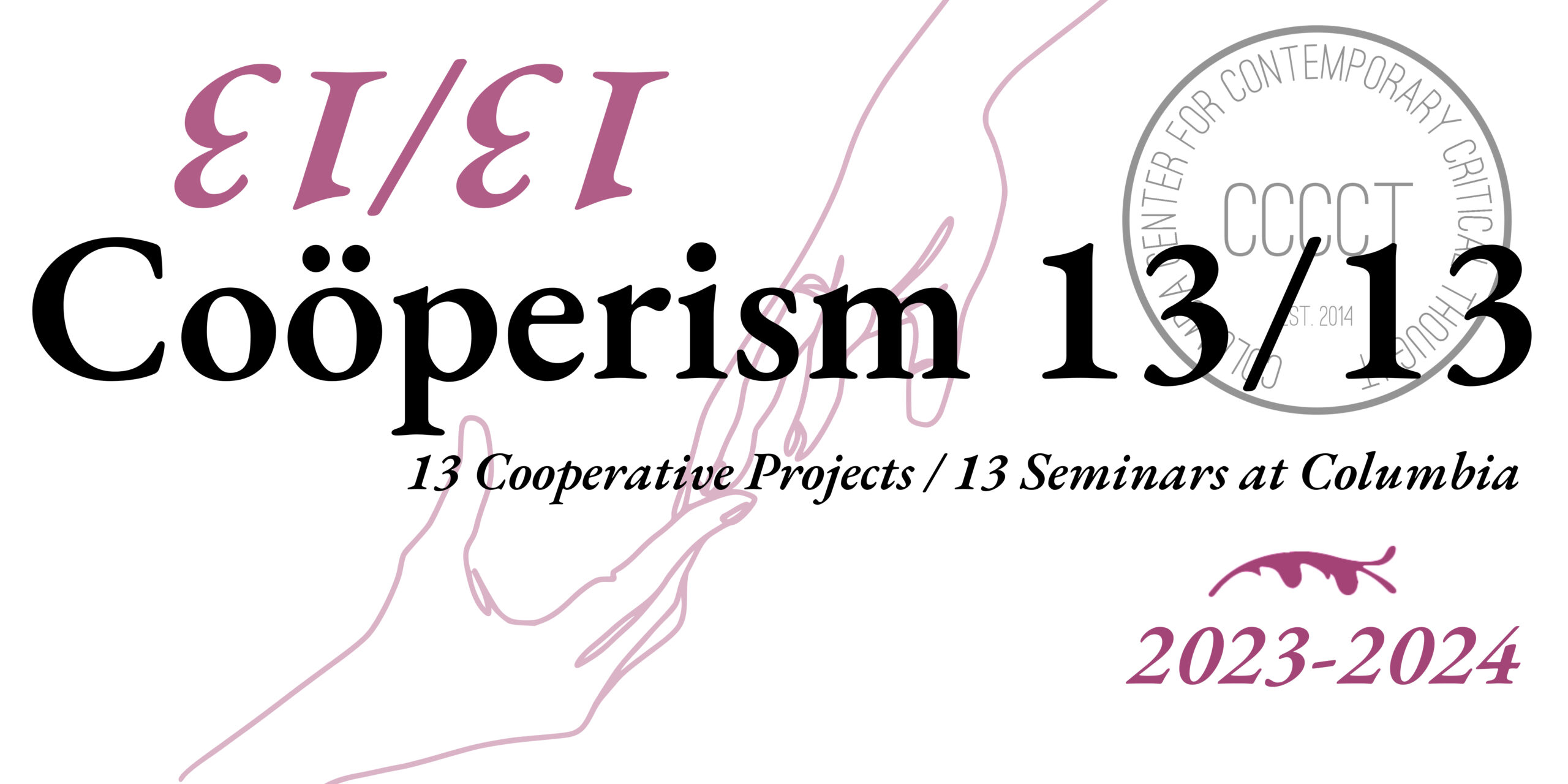By Bernard E. Harcourt
“it is all the more clear what we have to accomplish at present: I am referring to ruthless criticism of all that exists, ruthless both in the sense of not being afraid of the results it arrives at and in the sense of being just as little afraid of conflict with the powers that be.”
— Marx to Ruge (September 1843)
Ruthless, yes. But what is the proper object of our ruthlessness? Should it be the critique of all that exists? I think not, or not just. That is simply going to paralyze us, demobilize us. No, we must be ruthless, but ruthless in our critique and practice—ruthless in confronting critique and praxis.
In a previous post, I argued that Marx undermined the potential of worker cooperatives by criticizing them prematurely, before they had time to displace private forms of accumulation. I agreed with Marx that worker cooperatives could be considered a natural next phase of labor organization; in fact, as a historical matter, that has often been the case: the Commune of Paris in 1871, for instance, saw the proliferation of worker cooperatives and workshops—in French, ateliers—which were considered the most promising way to overcome private exploitation. It is hard to imagine how else to progress from privatized modes of production without first going through a process of cooperatives. But, that being the case, to ruthlessly criticize worker cooperatives before they have even flourished is to nip a promising development in the bud. I think this is why Lenin changed course on his ruthless critiques of cooperatives and, late in life, turned to cooperation.
As I continue to reflect on the question, I realize that the problem goes back to Marx’s quip about the “ruthless criticism of all that exists,” a famous line from his letter to Arnold Ruge from the time of their collaboration on the Deutsch-Französische Jahrbücher in 1843. Often, critique is so ruthless, critical theory is so critical, that it leaves little room for imagining a future. It does not give any oxygen to the next development because it already anticipates its critique. The result can be demobilizing—so ruthlessly critical as to paralyze any possible imaginative reconstruction. This is often true of contemporary forms of critical thought more generally—including poststructuralism, radical deconstruction, or Adorno’s negative dialectics—which can be so ruthlessly critical as to be disarming.
Now, I’m all for being ruthless. The question, then, is what to be ruthless about? And I would argue that we need to be ruthless not simply in our criticisms, but in our praxis and, even more so, in confronting the recurring tension between critique and praxis. There must be an opportunity for practice, for political experimentation, for new developments before we ruthlessly critique them. If the criticism is too exhaustive, anticipatory, and permeating, then we never will get to the practices that are more promising, even if inevitably faulty. We simply never allow for the productive cycles of practice and criticism and on and on—of critique and praxis.
New experiments will inevitably encounter weaknesses and failure. Despite that—or for that very reason—we need to engage in those experiments. This calls for a radical theory of illusions that allows for the production of new practices all the while recognizing that they will be subject to criticism later. Once we get to the next stage, it will turn out that we will be ready to criticize it, locate its deficiencies, and show the ways in which it’s an illusion. But if we treat it as such, before it even exists, we’re not going to make any progress.
Instead of being ruthlessly critical, we need to have a ruthless confrontation of critique and praxis. I tried to spell out this idea of a ruthless confrontation of critique and praxis in a recent essay at the Law and Political Economy blog. The idea of a ruthless back and forth reflects the need to be constantly vigilant and learn from failure. There is much to be learned from productive failures, but nothing to be gained unless we first engage in practice.
So, three cheers for the ruthless confrontation of critique and praxis that allows for political practices to evolve, to grow, to emerge, to move us to the next stage, which we can then critique, and so on. Perhaps another way of saying this is that, on the logic of Critique & Praxis, the idea of Coöperism may well be the next great illusion, but it is a very desirable illusion that should first be implemented before being unveiled!
* * *
PS. One final thought. This may reflect the crystalline structure of critical thought (drawing on Jack Balkin’s essay on The Crystaline Structure of Legal Thought). It may have to do with the recurring patterns of critique: critical moves replicate, and we can anticipate how they will recur at the next stage of historical development. As a result, we can almost anticipate how we would critique a phenomenon that has not yet even actualized. But that can be suffocating.
